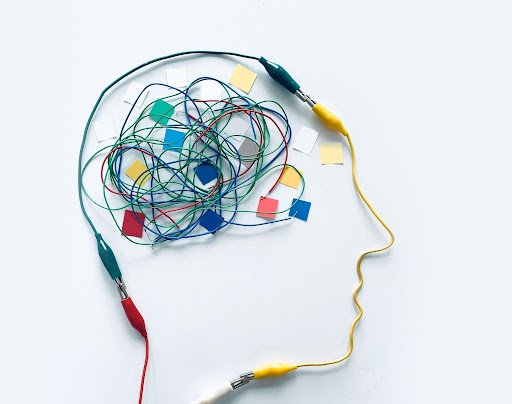Hypnotherapy is a powerful therapeutic technique that has gained recognition for its ability to address various mental and physical health issues. Although often misunderstood, hypnotherapy is grounded in science and has been shown to have significant benefits. This article explores the science behind hypnotherapy, exploring how it works, its effects on the brain, and its applications in mental health and well-being.
Understanding Hypnotherapy
What is Hypnotherapy?
Hypnotherapy is a form of therapy that uses guided relaxation, intense concentration, and focused attention to achieve a heightened state of awareness, known as a trance. In this state, individuals are more open to suggestions, which can be used to change negative thought patterns, behaviours, and emotions.
The Role of the Hypnotherapist
A trained hypnotherapist guides the individual into a trance state, using various techniques such as verbal cues, relaxation exercises, and imagery. The hypnotherapist then introduces positive suggestions that are designed to help the individual achieve their therapeutic goals, such as reducing anxiety, overcoming phobias, or managing pain.
Experienced hypnotherapist Ailsa Frank who has helped thousands of people through her Feel Amazing app says:
“The subconscious part of the mind stores memories and learnt behaviour. Hypnosis allows you to by-pass the conscious mind to access this deeper subconscious storage facility to unlock the root of bad habits, fears and beliefs. During which time you can embed positive suggestions either through one to one sessions or whilst listening to a self hypnosis recording.”
“Hypnosis is nothing new. Early signs are believed to be seen in the dream temples of the Egyptians thousands of years ago. The word ‘Hypnos’ is the name of the Greek God of sleep. The ancient Greeks created sleep temples. Hypnosis is a daydream state which everyone experiences.”
The Science of Hypnotherapy
The Brain During Hypnosis
Research has shown that hypnotherapy affects brain activity, leading to changes in perception, memory, and emotion. Here’s what happens in the brain during hypnosis:
- Increased Theta Brain Waves: During hypnosis, there is an increase in theta brain waves, which are associated with deep relaxation and creativity. This brainwave pattern is similar to that experienced during meditation or the early stages of sleep.
- Reduced Activity in the Default Mode Network (DMN): The DMN is responsible for mind-wandering and self-referential thoughts. Hypnosis reduces activity in this network, leading to a focused and absorbed state of mind.
- Heightened Activity in the Anterior Cingulate Cortex (ACC): The ACC plays a role in error detection and conflict resolution. During hypnosis, the ACC becomes more active, enhancing the ability to focus on specific tasks or suggestions.
- Altered Connectivity Between Brain Regions: Hypnosis can alter the connectivity between different brain regions, leading to changes in perception and experience. For example, hypnosis can reduce the perception of pain by altering the way the brain processes pain signals.
The Hypnotic State
The hypnotic state is not the same as sleep. Instead, it is a unique state of focused awareness in which the individual is highly responsive to suggestions. This state allows the individual to access the subconscious mind, where deep-seated beliefs and behaviours are stored.
Key Characteristics of the Hypnotic State:
- Focused Attention: The individual’s attention is intensely focused on the hypnotherapist’s suggestions, often to the exclusion of external stimuli.
- Increased Suggestibility: The individual is more open to suggestions, making it easier to modify behaviours and thought patterns.
- Dissociation: The individual may experience a sense of detachment from their surroundings or even from their own body.
How Hypnotherapy Works
Hypnotherapy works by accessing the subconscious mind, where many of our automatic behaviours and thought patterns are stored. By making positive suggestions while the individual is in a trance state, the hypnotherapist can help reprogram these patterns, leading to lasting change.
Mechanisms of Change in Hypnotherapy:
- Reprogramming the Subconscious Mind: Hypnotherapy can help overwrite negative beliefs and behaviours stored in the subconscious mind with positive ones.
- Enhancing Neuroplasticity: The brain’s ability to change and adapt, known as neuroplasticity, is enhanced during hypnosis, making it easier to form new habits and thought patterns.
- Reducing the Impact of Negative Memories: Hypnotherapy can help reduce the emotional impact of negative memories, making it easier for individuals to move on from past traumas.
Applications of Hypnotherapy
Mental Health and Well-Being
Hypnotherapy has been shown to be effective in treating a variety of mental health conditions, including:
- Anxiety and Stress: Hypnotherapy can help individuals manage anxiety and stress by promoting relaxation and changing the way they respond to stressors.
- Depression: By addressing negative thought patterns and boosting self-esteem, hypnotherapy can be a valuable tool in the treatment of depression.
- Phobias and Fears: Hypnotherapy can help individuals overcome phobias and fears by desensitising them to the feared object or situation.
Pain Management
Hypnotherapy is also used as an adjunctive treatment for pain management. By altering the way the brain perceives pain, hypnotherapy can reduce the intensity of pain and help individuals cope with chronic pain conditions.
Examples of Pain Conditions Treated with Hypnotherapy:
- Chronic Pain: Conditions like fibromyalgia, arthritis, and migraines can be managed with hypnotherapy.
- Acute Pain: Hypnotherapy can also be used to manage acute pain, such as post-surgical pain or pain from injuries.
Habit Change and Addiction
Hypnotherapy is effective in helping individuals change habits and overcome addictions, such as smoking cessation, weight loss, and substance abuse.
How Hypnotherapy Helps with Habit Change:
- Breaking the Habit Loop: Hypnotherapy can disrupt the habit loop by changing the triggers, behaviours, and rewards associated with the habit.
- Reinforcing Positive Behaviours: Positive suggestions during hypnosis can reinforce new, healthier behaviours, making it easier to stick to them.
Scientific Evidence Supporting Hypnotherapy
Clinical Studies and Research
Numerous studies have demonstrated the efficacy of hypnotherapy in treating various conditions. For example:
- Anxiety and Depression: A meta-analysis of clinical trials found that hypnotherapy is effective in reducing symptoms of anxiety and depression.
- Pain Management: Research has shown that hypnotherapy can significantly reduce pain intensity in individuals with chronic pain conditions.
- Smoking Cessation: Studies have found that hypnotherapy can increase the success rate of smoking cessation efforts.
Hypnotherapy and Neuroimaging
Neuroimaging studies have provided insights into how hypnotherapy affects the brain. Functional magnetic resonance imaging (fMRI) and electroencephalography (EEG) have shown that hypnosis alters brain activity in regions associated with attention, perception, and emotion.
Key Findings from Neuroimaging Studies:
- Altered Brain Connectivity: Hypnosis alters the connectivity between different brain regions, leading to changes in perception and experience.
- Enhanced Focus and Concentration: Hypnosis increases activity in brain regions associated with focused attention and concentration.
- Reduced Pain Perception: Hypnosis reduces activity in brain regions associated with pain perception, leading to decreased pain intensity.
Practical Applications and Tips for Using Hypnotherapy
Integrating Hypnotherapy into Daily Life
Hypnotherapy can be integrated into daily life to manage stress, improve mental health, and achieve personal goals. Here’s how:
- Daily Practice: Regular practice of self-hypnosis or guided hypnotherapy sessions can help reinforce positive changes.
- Mindfulness and Relaxation: Combining hypnotherapy with mindfulness and relaxation techniques can enhance its effectiveness.
- Tracking Progress: Keeping a journal of your hypnotherapy sessions and progress can help you stay motivated and monitor your improvements.
Listening to Recordings on the Feel Amazing App
To experience the benefits of hypnotherapy, consider listening to the guided recordings by Ailsa Frank available on the Feel Amazing app. These sessions are designed to help you relax, reprogram negative thought patterns, and achieve your mental health goals.
Why Use the Feel Amazing App:
- Expert Guidance: The app offers professionally guided hypnotherapy sessions tailored to various needs.
- Convenience: Access hypnotherapy sessions anytime, anywhere, making it easy to integrate into your daily routine.
- Effectiveness: The recordings on the Feel Amazing app are designed to maximise the benefits of hypnotherapy, helping you achieve lasting change.
Conclusion
Hypnotherapy is a scientifically supported therapeutic technique that offers numerous benefits for mental health, pain management, and habit change. By understanding the science behind hypnotherapy and how it works, you can make informed decisions about incorporating it into your wellness routine.
For those interested in experiencing the transformative effects of hypnotherapy, the Feel Amazing app offers a range of guided sessions designed to help you relax, reduce stress, break habits, and achieve your mental health goals. Give it a try and discover the power of hypnotherapy for yourself.





